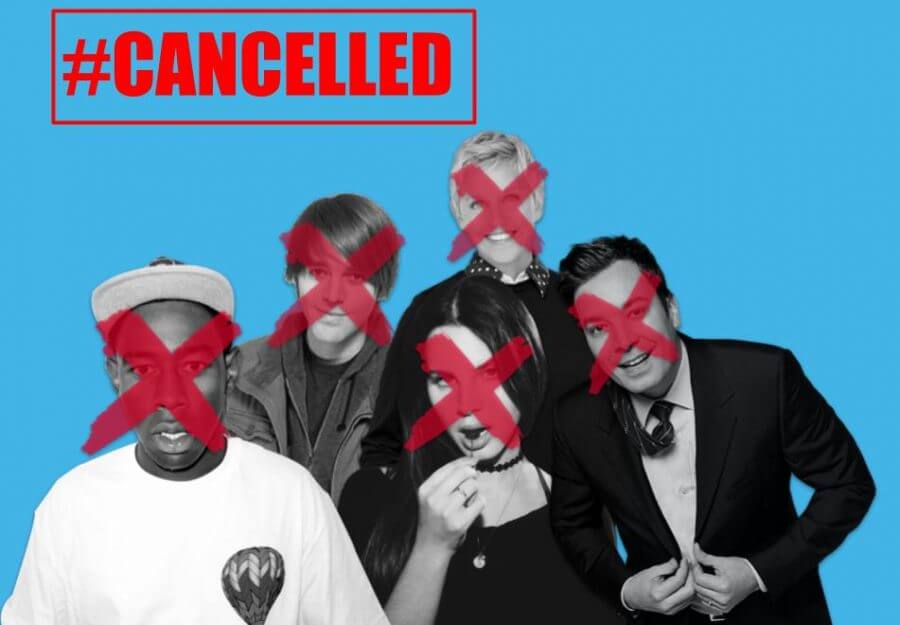In the last few years, people’s adherence to cancel culture has grown exponentially. From what it seems like, both celebrities and businesses are being cancelled left and right for their “controversial” beliefs. Does cancel culture add any value to our society?
Generally-speaking, I feel cancel culture is toxic and a threat to Americans’ constitutional right to freedom of speech. Because cancel culture can have long-lasting negative consequences, people are afraid to share their opinions. People should not have to tip-toe around one another when disagreements arise.
Back in 2019, it was reported that Chick-fil-A was donating to anti-LGBTQ+ groups. Hobby Lobby was victim to public scrutiny for staying open during the height of the pandemic, thereby putting the health of their workers and customers at risk. Scores of people rallied to cancel best-selling author of the Harry Potter series, J.K. Rowling, for making trans phobic remarks on Twitter.
While there is no question cancel culture is toxic, I do believe that cancel culture can prompt positive change.
For instance, the #MeToo Movement empowered women and men alike to call out their sexual abusers, encouraging multitudes of people all over the world to break their silence. Essentially, these individuals “cancelled” their abusers, as well as the stigma that surrounds speaking about sexual misconduct and assault.
This was especially true when A-list celebrities were put under the fire, like Brock Allen Turner. When Turner was a college student, he attended a party but was later caught taking advantaging of a college woman in 2015. The victim went on to write a book about her experience and called him out on the internet. She won her case in court and Turner’s life went down the drain.
While cancel culture can be effective, it isn’t enough to rely on when correcting people’s actions.
For instance, popular social media influencer and beauty guru, James Charles, has had various scandals. His most recent and scandal concerned his relationship with an underage boy. Charles would send explicit photos to him on Snapchat, claiming he did not know that the boy was a minor; however, evidence proves otherwise. Despite Charles’ scandal, he is still popular with a strong fan base.
Although YouTube temporarily stopped monetizing his videos and some sponsors dropped him, Charles is still a big name in the beauty world. In this case, the cancels against Charles weren’t enough to stop his growing fame. I believe Charles needs to face more severe punishments for his actions.
On the other hand, American rapper, Lil Nas X, fell victim to cancel culture. For his music video MONTERO (Call Me by Your Name), he is shown giving Satan a lap dance. The internet was outraged and tried to cancel him. Christians were not only upset about the presence of Satan, but also upset over his sexuality. I do not think he should be cancelled for those reasons since there are worse things a person can do.
Another American rapper, Kanye West, went on an antisemitic rant on Twitter and said how he wishes to see the Jews wiped out (like they did in World War II). He claimed he could say stuff like that since Black people are Jews. Although I am not shocked West would say something like this, I am glad Twitter banned his account.
People like West should not have a platform and I do not understand how the world has not cancelled him yet. Even with harassing his former wife, Kim Kardashian. Why is West still running his mouth with no consequences? It is unacceptable and sickening.
I am all for free speech and for being yourself if it doesn’t harm anyone else in the process. However, there are lines that should not be crossed when doing so. Cancel culture seems to only pick and choose what is worthy of being cancelled.
To conclude, cancel culture needs more defined boundaries. Those who advocate for what they believe in (no matter if you personally believe it’s wrong), should be allowed to do so. On the flip side, anything that could cause harm to another being is not tolerable and the abuser deserves to be punished accordingly.



